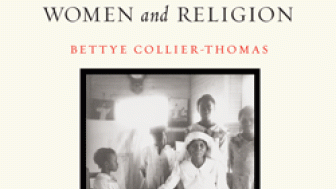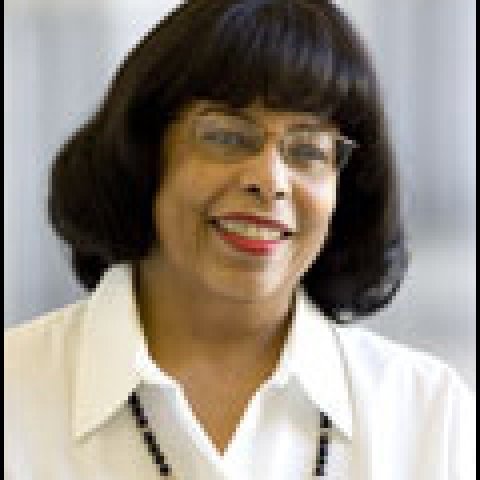Bettye Collier-Thomas
Former Public Policy Scholar
Professional Affiliation
Professor, Department of History, Temple University
Expert Bio
My research originally focused on African American community development in the late nineteenth and early twentieth century. While researching my dissertation on "The Baltimore Black Community, 1865-1915" I uncovered a world where black women were deeply immersed in the social and political issues of the time and active participants in most community institutions.
Quite by accident, I stumbled over a 1860s news report about the Maryland Colored Border State Convention in which one of the star participants was Frances Ellen Watkins Harper. As the sole female occupying the platform with well-known black male leaders such as Frederick Douglass, Harper contended for the inclusion of women in the political process.
In 1970 Harper was virtually unknown. This was just the tip of the iceberg. As the research proceeded I was amazed at the extent to which black women of all classes were outspoken and active in political and social reform and invested in the struggle for black and female suffrage.By the time I defended the dissertation I knew that my mission in life would be to take on the massive task of not only uncovering and reconstructing black women's history, but also unknown aspects of African American history.
My earliest publications focused on economic, political, and cultural institutions and organizations that were at the center of late nineteenth and early twentieth century black life. The Chesapeake Marine Railway and Dry Dock Company, the Brotherhood of Liberty, and the Howard Theatre were mentioned in numerous sources, but there were no full length articles or monographs or archival collections. Few scholars choose to do historical research on individuals, organizations, businesses, or subjects where there are no identifiable or accessible primary or secondary sources. It requires an inordinate amount of time and patience, and a high level of discipline, determination, and perseverance to search out elusive documents, letters, and organizational papers.
Following a decade of teaching, I left the academy and began work with the National Council of Negro Women and the National Endowment for the Humanities that led to the founding of the Washington, D.C. based Mary McLeod Bethune Memorial Museum and the National Archives for Black Women's History (BMA). BMA was formally opened in November 1979. I also organized "Black Women: A Research Priority, The First National Scholarly Conference on Black Women in America," which was held in tandem with BMA's opening. The conference attracted over 2,000 persons— scholars, public officials, heads of organizations, and ordinary citizens.
I spent the 1980s engaged in developing the Bethune Museum and Archives (now a National Historic Site and an affiliate unit of the National Park Service), researching, writing and speaking at scholarly conferences and public gatherings.In 1989,with BMA firmly established, I made the critical decision to return to the academy. At Temple University I began concentrated research on the history of African American women and religion. Researching and writing ‘Jesus, Jobs, and Justice': The History of African American Women and Religion (forthcoming Alfred A. Knopf) I discovered that political activism was central to all aspects of black women's lives. It is out of my collective experience during the last three decades that this project has emerged. "‘We Are in Politics and in Politics to Stay': African American Women and Politics" is the first book length study on this topic.
Education
Ph.D., U.S. History, The George Washington University
M.A., U.S. History, Atlanta University
B.A., U.S. History, Allen University
Wilson Center Project
“In Politics and In Politics to Stay’: A History of African American Women and Politics, 1865-2008.”
Project Summary
African American women's political activism does not fit very well into the traditional U.S. political culture or the political party framework referenced by most scholars of women's history. At every point in history, black women's social and economic status has influenced their political rhetoric and shaped their political activism and participation in electoral and partisan politics. Prior to the late twentieth century racism and sexism restricted their inclusion in mainstream politics and political parties. Black women's political activism and involvement in politics has also been shaped by where they lived. The experiences of black women in the North and West differed from those in the South. The Great Migration altered the political landscape of northern and western cities such as Philadelphia, New York, Chicago, Boston, and Detroit and introduced many black women to the political process.However,prior to the passage of the 1965 Voting Rights Act black women functioned on the margins of party politics. My project will result in a book-length history of African American women and politics.
Major Publications
- Daughters of Thunder: Black Women Preachers and Their Sermons, 1850–1979. San Francisco: Jossey-Bass Publishers, 1997.
- Sisters in the Struggle: African American Women in the Civil Rights-Black Power Movement. Edited with V. P. Franklin. New York: New York University Press, 2001.
- "Frances Ellen Watkins Harper:Abolitionist and Feminist Reformer, 1825-1911," in Afro-American Women and the Vote, 1837-1965. Amherst, Mass: University of Massachusetts Press, 1997.
Previous Terms
September 1, 2008 - August 1, 2009 "We Are in Politics and in Politics to Stay': African American Women and Politics"
Insight & Analysis by Bettye Collier-Thomas
- Past event
- US History
Women, Ecumenism, and Interracial Organizing

- Article
Recent Wilson Center Fellow Bettye Collier-Thomas Awarded OAH Book Prize

